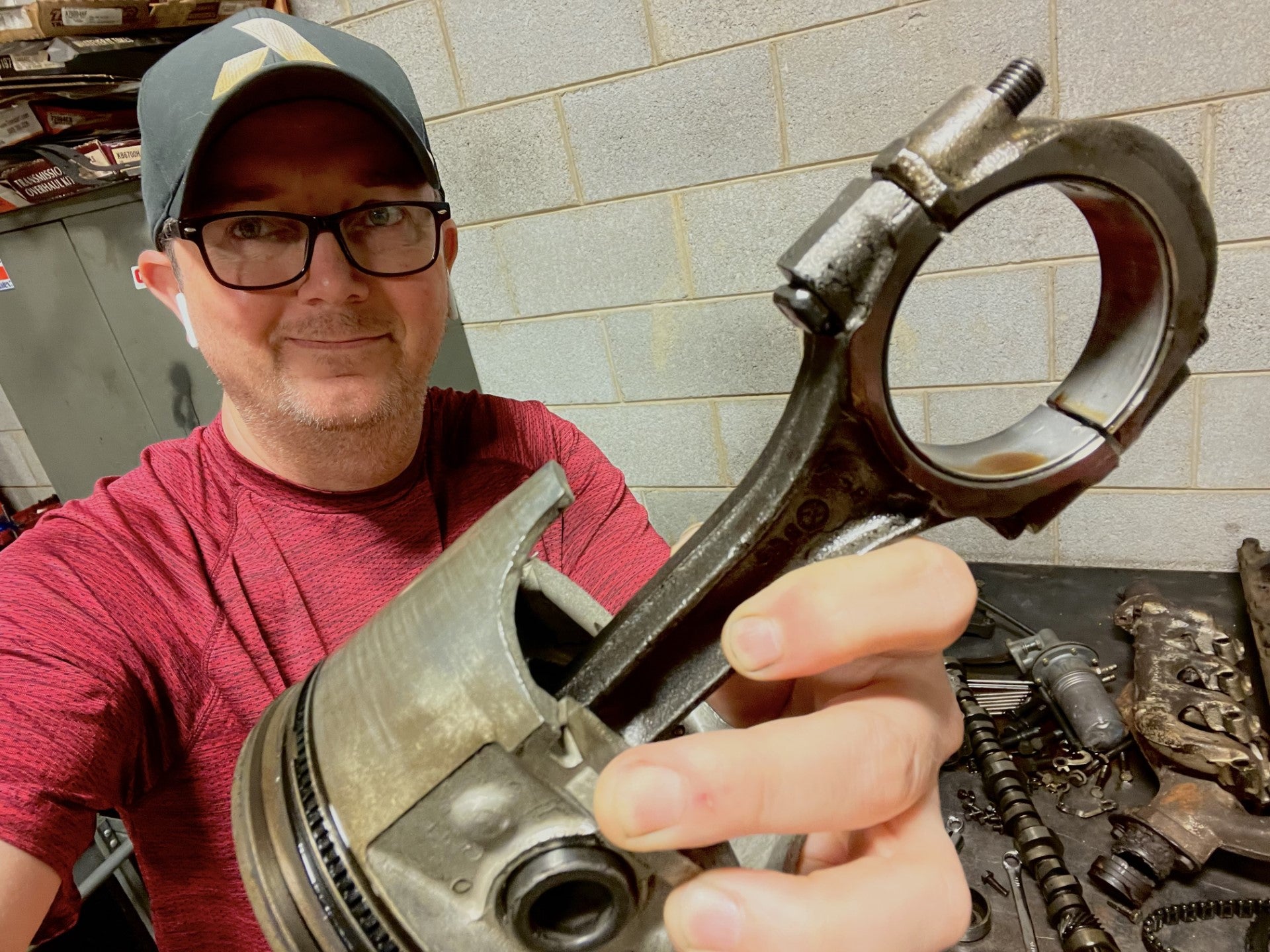This week I started on a project that will eventually turn into something much bigger. For the first time in about 10 years, I started rebuilding an engine.
It might come as a shock to many of you that this is very rare in my field of work. While I have built quite a few for my personal cars, I have only done three of these while working for a shop in the last 25 years. Even as a teacher, it is not a very big part of our curriculum, and our employers who hire our students do not value the skill.
Decades ago, it used to be common for shops to rebuild engines in-house, even having some of the machining equipment available for grinding valves and other small jobs.
The cylinder block and rotating assembly would be sent to a machine shop and returned in like-new condition. The mechanic who took the engine out would assemble it and reinstall it.
This worked well for years due to the low cost of parts, machining, and labor.
In current times, engines rarely get rebuilt by the technician, and maybe not at all. With the complexity of modern engines and the precision with which they are machined, it takes many more tools and much more knowledge.
The parts are more expensive and with shop labor rates climbing, it is more cost effective to replace the entire engine with a new assembly. Rebuilding most modern engines is like taking a goldfish to the veterinary office. Sure, it can be fixed, but at a cost.
Modern engines are also lasting longer than ever, with engine failures coming in at much higher mileage than older era cars. This can make a repair more expensive than the car is worth.
According to J.D. Power and Associates, the average engine replacement costs are anywhere from $4,000 to $10,000 and from what I have experienced, that seems correct to me. Even if you replace the engine, you must worry about the rest of the car failing around it.
Transmissions are also prone to fail around the same mileage as engines do, and we stopped rebuilding those too, mostly.
There are still engine rebuilders out there. In the world of heavy-duty trucking, engines are reconditioned routinely. With the price of these engines new and a longevity of over a million miles, it makes more financial sense in that industry.
In the high performance and motorsport industry, engine rebuilding and machining is a way of life. Seasoned engine techs travel with race teams and can rebuild motors in a few hours if needed.
Another reason to rebuild is rarity. Some engines aren’t made anymore and the new or used option is not available. That is the situation I am in. No one is making 1965-era 289 Ford engines, and I wanted something authentic for a project I am working on. Plus, I forgot how much fun it was.
I am really enjoying this build. If you can build your own engines, I highly recommend it. Very soothing!
So how about you? Have you ever rebuilt an engine before? Let me know in the comments, I’d love to hear about it.
See you on the road!










